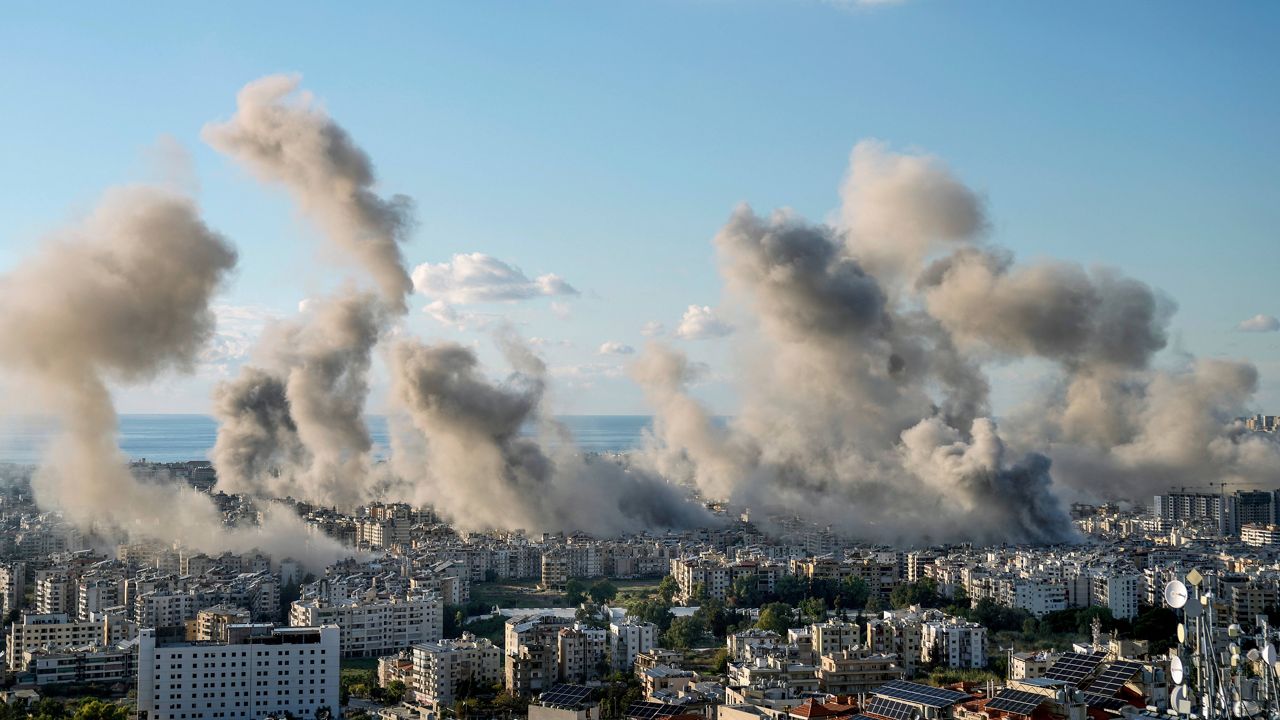BEIRUT — Israeli warplanes struck central Beirut and the city's southern suburbs on Tuesday, raising smoke over the Lebanese capital ahead of a planned vote by Israel's leadership on whether to accept a U.S.-brokered ceasefire aimed at ending more than a year of fighting with Hezbollah militants.
What You Need To Know
- Israeli warplanes have struck central Beirut, and new evacuation warnings have been issued for 20 buildings in the Lebanese capital's southern suburbs
- Tuesday's strike leveled a building, and authorities say at least three people were killed
- It was not immediately clear if anyone in particular was targeted
- The strike in central Beirut came hours before Israel's security Cabinet was scheduled to vote on a U.S.-brokered ceasefire deal aimed at ending more than a year of fighting between Israel and the Iran-backed Hezbollah
The Israeli military issued a flurry of evacuation warnings — a sign it was aiming to inflict punishment on Hezbollah down to the final moments before any ceasefire takes hold. Israeli ground troops also reached parts of Lebanon's Litani River for the first time in the conflict — a focal point of the emerging deal.
The evacuation warnings covered many areas, including parts of Beirut that have not been targeted throughout the war. The warnings, coupled with fear that Israel was ratcheting up attacks in the final hours before a ceasefire is reached, sparked panic in Lebanon and sent residents fleeing in their cars to safer areas.
Near Beirut's commercial Hamra district, where many displaced by the war have been staying, families were seen running away toward the Mediterranean sea's beaches carrying their belongings. Traffic was completely gridlocked as people tried to get away and Israeli drones buzzed loudly overhead.
Hezbollah, meanwhile, kept up its rocket fire, triggering air raid sirens across northern Israel.
A ceasefire was still not a sure thing, but Israel's security Cabinet, meeting Tuesday afternoon, was expected to approve the proposal. Lebanese officials have said Hezbollah also supports the deal. If approved by all sides, the deal would be a major step toward ending the Israel-Hezbollah war that has inflamed tensions across the region and raised fears of an even wider conflict between Israel and Hezbollah's patron, Iran.
The deal calls for a two-month initial halt in fighting and would require Hezbollah to end its armed presence in a broad swath of southern Lebanon, while Israeli troops would return to their side of the border. Thousands of Lebanese troopsand U.N. peacekeepers would deploy in the south, and an international panel headed by the United States would monitor all sides' compliance.
But implementation remains a major question mark. Israel has demanded the right to act should Hezbollah violate its obligations. Lebanese officials have rejected writing that into the proposal. Israel's Defense Minister Israel Katz insisted on Tuesday that the military would strike Hezbollah if the U.N. peacekeeping force, known as UNIFIL, doesn't provide "effective enforcement" of the deal.
"If you don't act, we will act, and with great force," Katz said, speaking with U.N. special envoy Jeanine Hennis-Plasschaert.



